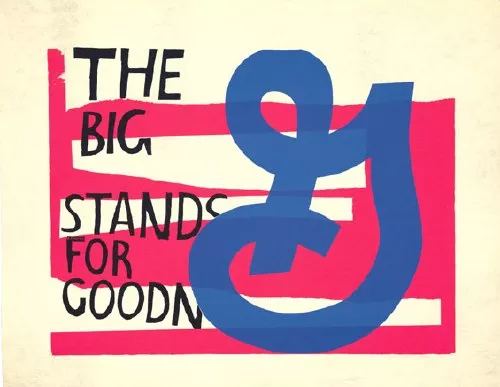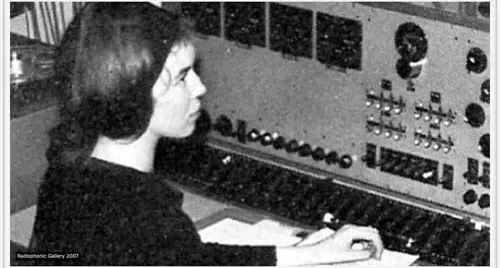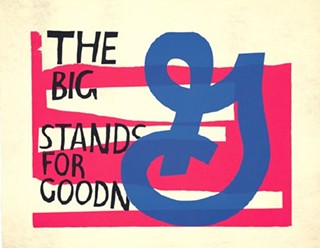
Already one of my highlights for the festival, Become a Microscope, is a short doc about 1960s pop artist Sister Corita, an inspiring nun who taught at a Catholic LA college, and who became an influential force in the art world, making friends with the Eames brothers and Hitchcock. The doc's by Aaron Rose (with a soundtrack by Money Mark), who is best known for the Beautiful Losers art movement, and it's gorgeously shot, with brilliant-hued archive footage and photos. Corita's serigraphs, which Rose animates, wouldn't look out of place beside a Yo Rodeo or Seripop poster on a telephone pole. Corita started off with religious content, and slowly moved into the secular, incorporating advertisements and slogans and a lot of text into her work. Inspired by the world around her—grocery stores, street signs, etc.—she was also very political and aware of world events, which was part of the reason she eventually left the conservative order and teaching, to focus on her art.
Podcast of an Aaron Rose curated exhibition of Sister Corita's work.
Maybe it's the fact that I was taught by a few nuns myself, or a lack of sleep, but I found this combination of art, nuns and spiritualism made me a little emotional.

Kara Blake's The Delian Mode is another early favourite—the Montreal filmmaker also took the best short film at Hot Docs. I love Blake's camera style-the aesthetic is like watching a film through a Viewmaster, which is what I think she is trying to achieve. Delia Derbyshire was a British 1960s electronic musician, toiling away in a BBC Radiophonic Workshop, where she created sounds for various programs. She was best known for the creepy-as-shit Doctor Who theme song. Although she didn't compose the music, it was her manipulation of Ron Grainer's notes that makes that song what it is, even though the BBC refused to give her co-composer credit (no royalties). What's astonishing is that this song, and others she created (there's one piece that's been recovered since her death that is considered to be the first electronic dance song), were done pre-computer, pre-synthesizer. If she wanted a sound, Derbyshire would have to find it. So each sound was recorded to tape, which was then cut with a razor blade to get the individual notes, and then all of them were taped back together again on multiple machines, played and then recorded together at the same time.
Archive footage of Delia explaining her process.

My only disappointment for the day was 14-minute Swedish doc Bye Bye C'est Fini about Lina Merceis, a free-thinking, sexy 73-year-old Brazilian woman who has a string of young lovers that she keeps around for as long as they give her pleasure, considering men to be "disposable." At first it's all "you go girl," but then things seem a little off: her apartment looks like that of a 16-year-old girl, all pink and frilly, and there's the suggestion she was raped at 14 by her future husband. One of the young men she's dating is engaged, and you wonder if any of these young bucks are taking their 73-year-old girlfriend out of dinner or to a movie, or if Lina is a dirty little secret. By the end I wasn't sure if this was an empowered woman, or someone with some emotional issues. I think if this movie was a little longer, and answered a few more questions, Lina wouldn't seem so much like a punchline.
















